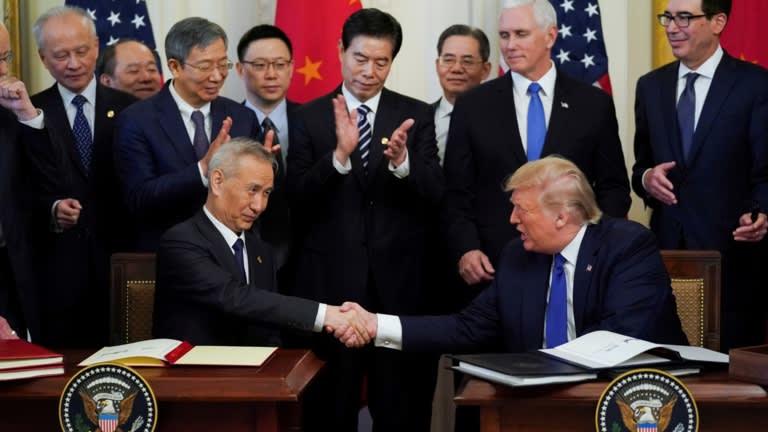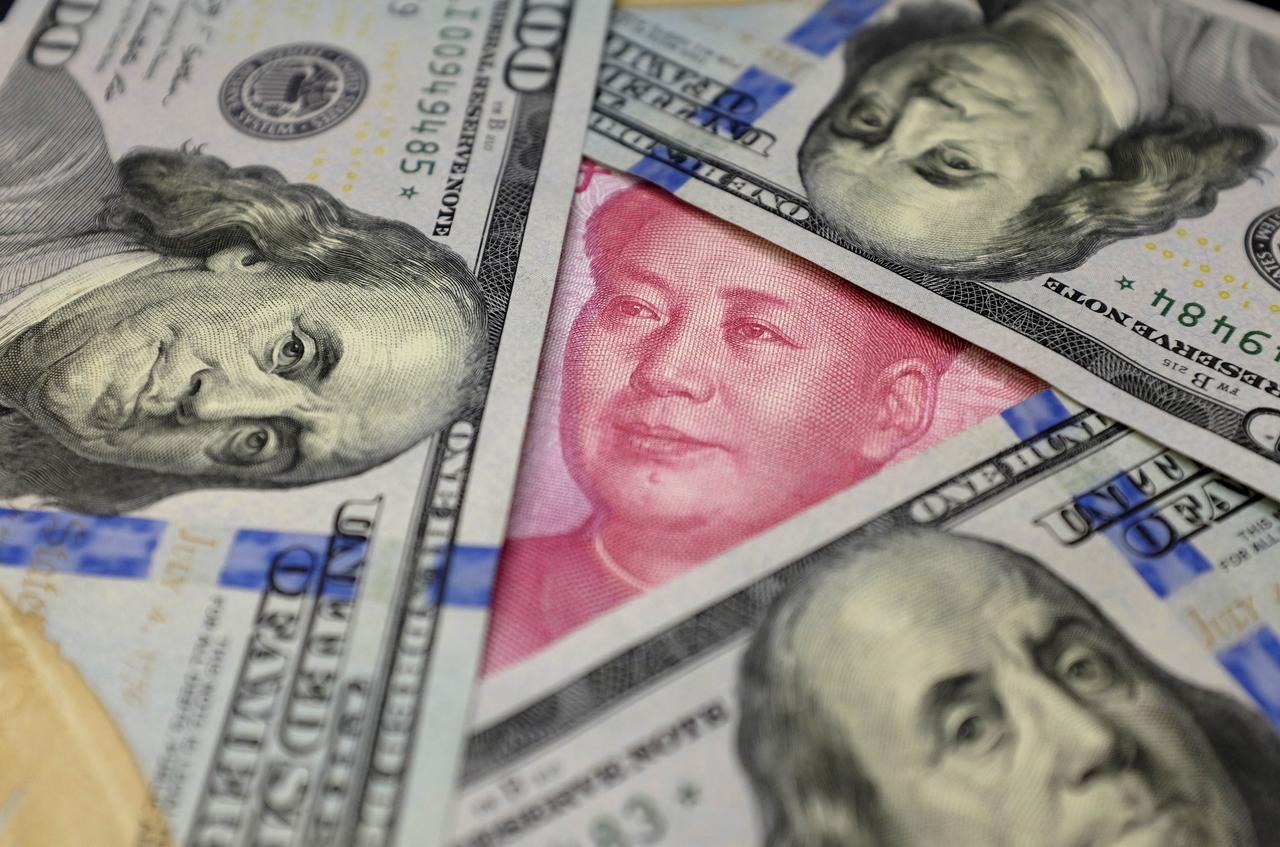The Dollar “Has Us By The Throat”: Chinese Official Urges Gradual Decoupling Of Yuan Ahead Of “Full-Blown Escalation”
Tyler Durden
Tue, 07/14/2020 – 20:50
With all eyes on Trump’s Tuesday evening Rose Garden speech which unveiled that he’ll sign new and punitive measures indirectly targeting China — namely the Hong Kong Autonomy Act, a bipartisan measure to penalize banks that work with Chinese officials found to be interfering in Hong Kong affairs — it remains that arguably the most important recent statements out of China came not from current government officials, but from Zhou Li, the 65-year-old former deputy head of the Chinese Communist Party’s International Liaison Department. He’s considered an important voice who echoes the outside the box thinking and general “talk” of the communist party’s diplomatic establishment.
Amid the soaring US-China tension which could give way to a military stand-off in the South China Sea, given the presence and military exercises of two US supercarriers there, Zhou Li earlier this month issued what many see as the more radical ‘extreme thinking’ out of the communist party: an eventual decoupling of the Chinese yuan from the US dollar.
This would be a “full-blown escalation” with no off ramp scenario. But given the tit-for-tat with Washington is likely to lead precisely to further extreme responses on both sides, Zhou’s position could in the end be the final weapon Beijing ultimately and no doubt reluctantly pulls out of its arsenal. Now is the time for Beijing to begin insulating itself from “dollar hegemony and gradually achieve the decoupling of the renminbi from the US currency,” Zhou argued. “The US dollar could become a major risk issue that ‘has us by the throat’.”
He penned an article widely reported on in regional media which “predicts industrial supply chains being torn up, a China-U.S. decoupling and a world split into dollar and yuan economic blocs.” This would take China, contrary to President Xi’s ambitious plans for his country as an expanding global economic power, into a ‘forced’ unprecedented level of isolation.
“By taking advantage of the dollar’s global monopoly position in the financial sector, the US will pose an increasingly severe threat to China’s further development,” Zhou wrote in the article originally published by the Beijing-based think tank Chongyang Institute for Financial Studies at Renmin University.
Framing what’s at issue behind the former high ranking diplomat’s rationale, The South China Morning Post summarized:
The US had been able to leverage the dollar-dominated SWIFT international payments messaging system to extend “long-arm jurisdiction” for its policies outside America, including sanctioning Russia and Iran, Zhou noted. Sanctions against energy suppliers could jeopardise China’s energy security, he warned.
And further: “China must accelerate the internationalization of the yuan, speed up the increase in cross-border payments and clearing arrangements for the yuan, establish local currency settlement mechanisms with more countries, and create conditions to maximise the use of the Chinese currency in global industrial supply chains, Zhou said.”
Broadly, in this most dire scenario spelled out by Zhou, decoupling would only be possible should a ripple effect of ‘walling off’ in other Chinese sectors also be aggressively pursued and in progress.

“Beijing should seize the opportunity to build China-centric regional industrial chains, given the continued devastation to overseas demand and the disruption of global supply chains caused by the coronavirus,” SCMP wrote of his words.
“In addition, Zhou warned, China should brace for a worldwide food crisis and the return of international terrorism during the pandemic,” the report also noted.
* * *
In a brief outline presented separately by Nikkei, Zhou’s position is that the Chinese must prepare:
1. For the deterioration of Sino-U.S. relations and the full escalation of the struggle.
2. To cope with shrinking external demand and a disruption of supply chains.
3. For a new normal of coexisting with the novel coronavirus pandemic over the long term.
4. To leave the dollar hegemony and gradually realize the decoupling of the yuan from the dollar.
5. For the outbreak of a global food crisis.
6. For a resurgence of international terrorism.
Again, such a grim position forecasting isolation is nowhere near the official Chinese Communist Party line, but represents a predicted necessary future reaction to full-blown long lasting conflict with the US.
